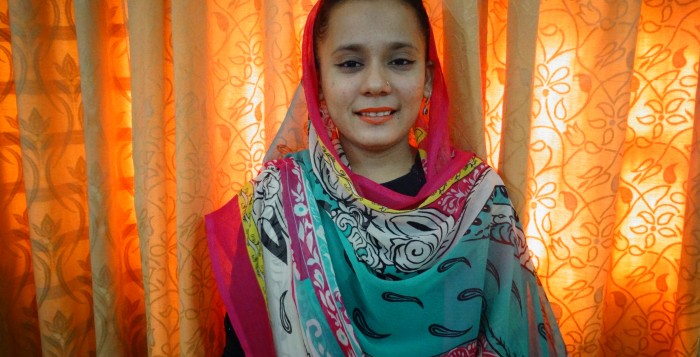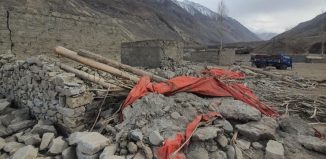In the Spotlight: Interview
Ms. Kainat is a teacher at one of Community World Service Asia’s Adult Literacy Centers, equipping rural women with basic literacy and numeracy skills.
- How did you become a teacher?
It was my childhood wish to become a teacher, so after passing my Intermediate examination I started teaching in private schools. Then I applied in UNICEF for an adult literacy project, where I started to teach adult women, who had never been to school. That was the start of my teaching experience.
- Why do you think it’s important for women in rural areas to have literacy skills?
It is commonly observed that women in rural areas are not allowed to go outside the home, whether it is for getting an education or to do any job, although they may want to. I think it is important for women in rural areas to have literacy skills, because if they are literate then they can participate more efficiently in any development activities of their area, they can be able to read and write the basic literacy words and numbers which are also essential for their life. Not only this, but if they start their own business, this literacy skill can build up their confidence and help out them to keep the balance record of expenditure, profit and loss.
- Did you have any concerns before your first class? What were your expectations?
Yes, I had just one concern about what their response would be, as they are going to join literacy classes for the very first time in their life, but I had some expectations that by utilizing my experience I would try my level best to teach them.
- What teaching methodologies do you use? In what ways do the students find these to be effective?
I teach students through different activities like playing games and role plays. I bring them on stage or give them space for discussion to build their confidence level. I also motivate them by giving small gifts so that their interest level can be enhanced and they can be more encouraged.
- What progress have you observed in the students?
Before starting the adult literacy course, they were facing difficulty even in holding a pencil, in recognition and pronunciation of words. They were very shy in asking questions or coming forward, but after attending the classes they have become confident, they take part in different project related activities like the celebration of International Literacy Day. They are able to read and write their name, small words and sentences. Now they easily recognize their Computerized National Identity Card by the numbers written on that. They read the expiry date before using any medicine and are familiar with the basic concept of adding and subtraction.
- Has anything surprised you?
I was surprised when some of the women told me that initially their men were not allowing them to join the Adult Literacy Centre. The men were discouraging them, but in spite of that, the women did not leave their hope to learn literacy skills and didn’t say, “Sorry, but we can’t join the ALC.” They tried to motivate their men by telling them the benefits of the centre, and they continued their classes.
- What motivates you to teach these students?
These women have never been to school, but they know the value and importance of education. Whatever homework has been assigned, they try to complete it and also ask to extend the ALC classes to learn more and more. So their level of interest towards getting knowledge and learning to read and write motivates me to teach them.
- How do you hope that your classes will help them in the long-term?
I think that their level of interest for learning will help them to learn by themselves even more. Also, literacy skills will help them when they go on to use their vocational training [provided by Community World Service Asia] to support their livelihood. They are also sharing the information and the knowledge which they learn from ALC classes with their children and family members.
- How do you think these classes benefit the community as a whole?
The community has become more aware of the importance of girl’s education. The Village Organization has taken initiative to increase the enrolment of girls in the village school, women are now allowed to come for literacy classes from neighboring areas. The Village Organization is also planning to promote girls’ education in their surrounding villages. In this way, the establishment of adult literacy is gradually bringing change in the community.







